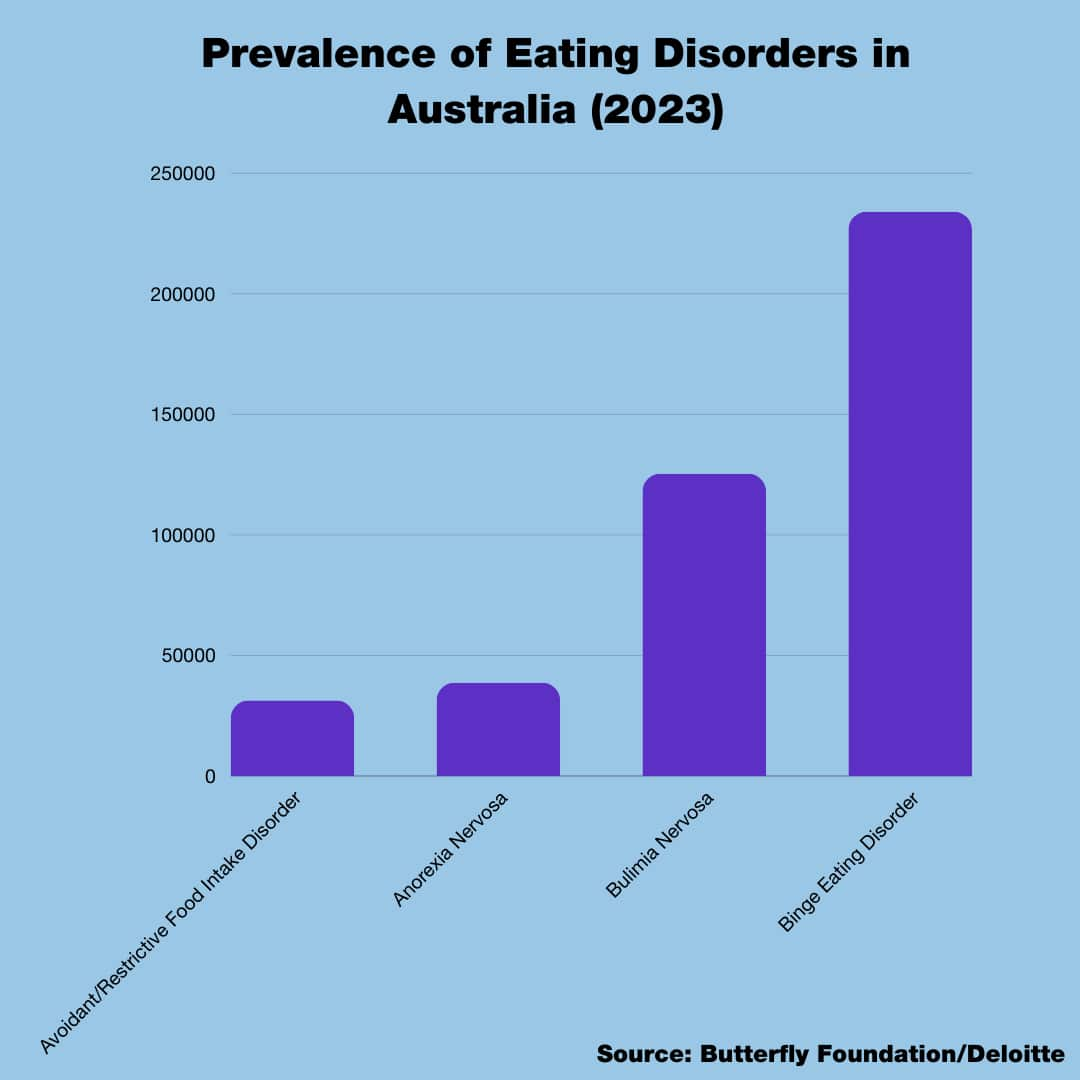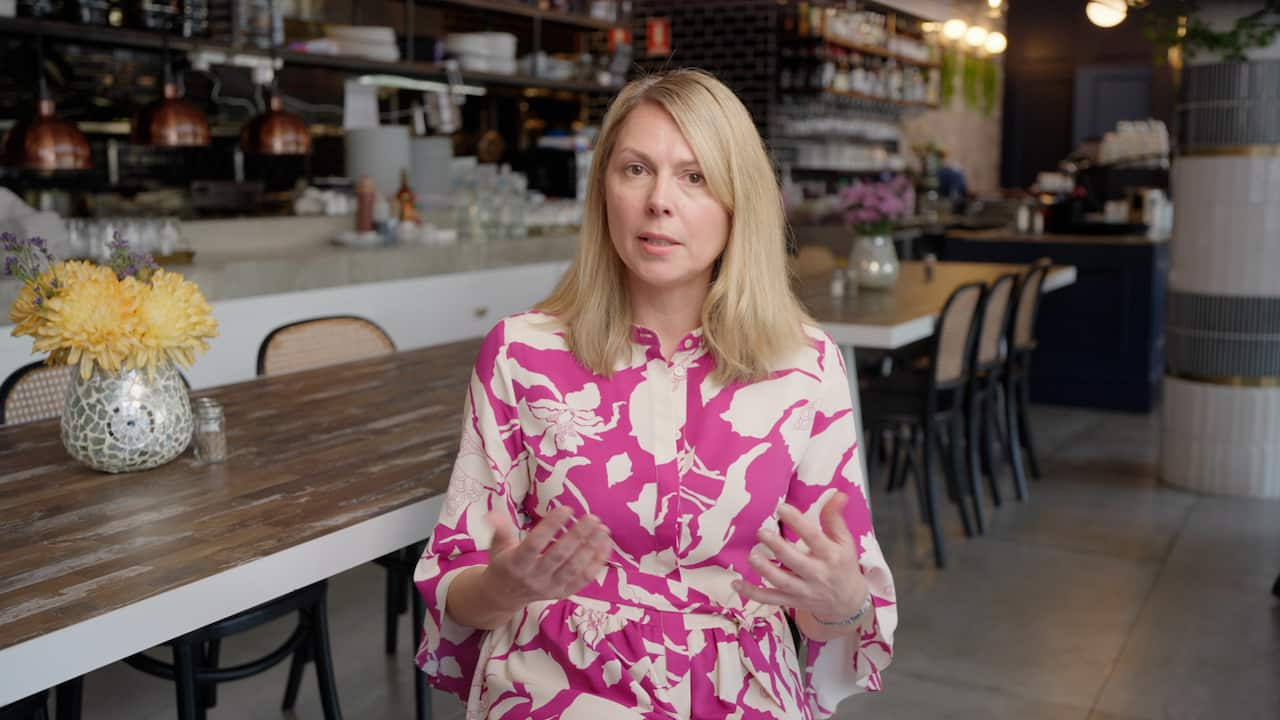This article contains references to eating disorders.
Tom Bennett often dry retches or nearly vomits when he tries to eat something that’s not pasta, baked beans, cereal, chips or bread — the foods that make up the extent of his diet.
Tom says he’s not a fan of flavour, tastes or textures — in fact, he’s “someone who doesn’t like food”.
“If I could take a pill and that’s all my meals for the day, I would absolutely do that,” the 26-year-old told The Feed.
Watch the full video below.
He says he has a food phobia and believes his fear of new foods is caused by his severe allergies to dairy and peanuts that stem back to childhood.
In primary school, he spent lunchtimes separated from his classmates, eating under the supervision of a staff member in case he had an allergic reaction.
“I always look at foods through that lens that: ‘Oh, this new food could potentially kill me’,” Tom told The Feed.
Mushrooms, meat pies, kebabs and vanilla slice are among the broad range of foods Tom has never tried.
Tom has a small list of meals he’s happy to eat on a regular basis. Source: SBS
‘Not a fan of flavour’
When we meet him at the elegant restaurant overlooking Perth’s Swan River where he’ll be married later this month, Tom is trying zucchini for the first time.
He usually only eats hot chips when at a restaurant. But after realising that as it stands, he won’t be eating anything on the menu at his wedding, he’s tasting other dishes in hopes of finding at least one palatable option.
Tom stares apprehensively at the four zucchini fritters.
“It’s a lot more green than what I was expecting,” he says.
“You might like the crunch,” his fiancée, Georgia, says encouragingly from across the table.
Tom forfeits his usual order of chips to try some new dishes in preparation for his wedding. Source: SBS
Tom’s verdict on zucchini: “Weirdly like weeds … what I imagine grass clippings of an overgrown lawn would taste like.”
Tom’s usual dinners are predictable — he rotates between baked beans on toast, plain pasta topped with dairy-free butter, and homemade nachos or tacos made only with taco shells, red kidney beans and tomato sauce. Breakfast is cereal and lunch is toast.
“Easily 99 per cent of my diet is those items when I’m cooking for myself,” says Tom.
What is selective eating?
Selective eating, also known as fussy or picky eating, is when someone limits the types of foods they have in their diet and is reluctant to try other foods.
Gabriella Heruc, a dietitian and adjunct associate professor at Western Sydney University, helps young people with eating-related issues.
She said selective eating is quite common: most children are fussy eaters in early childhood, but usually grow out of it.
“But in some people, it can become more of a problem that interferes with their everyday life,” Heruc said.
Heruc said selective eaters often experience sensory issues when trying new foods — for example, they may struggle with the taste, texture, smell, temperature or look of the food.
Having negative experiences with food, such as choking or food poisoning, could also cause a fear of food. Other picky eaters might simply not feel hungry.
And she said there could be consequences for people’s health.
“If someone has selective eating … it can lead to all kinds of complications in a young person,” she said.
“It might be that their growth could be impaired, they may be quite malnourished and underweight, which can have consequences on their bone development and their brain development.”
“It can also impact on physical complications because of malnutrition as well, such as causing problems with heart function.”
“I had a blood test done and that came back all fine. I’m very fit,” he said.
Trying new foods
Tom struggles most with foods that are soggy or runny, have too many ingredients, strong flavours or hidden bits.
But he’s now started trying new foods several times a week and is documenting his progress to thousands of viewers on social media.
“My motivation for trying new foods is to improve myself … if I’m ever to have kids in the future, I don’t want to pass this on to them,” he said.
ARFID: A life-threatening disorder
Tom has never felt the need to seek a diagnosis for his eating behaviour: “My mentality is there is nothing wrong with me”.
But for others, this can turn into a more complex condition.
Avoidant/restrictive food intake disorder (ARFID) is a relatively new eating disorder diagnosis, first classified in 2013.
It’s estimated around 1 in 300 Australians live with ARFID (although this is likely an underestimate because research is still limited).
There were reportedly over 30,000 Australians living with ARFID in 2023. Source: SBS
People with ARFID avoid eating or restrict their food intake out of fear or worry about certain types of foods. Unlike other eating disorders such as anorexia nervosa, this is not due to body image concerns.
Heruc said what sets ARFID apart from selective eating is how severely the behaviour impacts on a person’s life.
“[ARFID] might be stopping them from doing things socially, it might be causing them quite a lot of anxiety or distress,” she said.
“It might be causing malnutrition, vitamin and mineral deficiencies or causing them to be underweight.”
In severe cases, people with ARFID can end up being hospitalised because they are so malnourished.
“They’re almost paralysed into not eating because it’s so scary for them,” Heruc said.
Gabriella Heruc helps young people with food- and eating-related issues. Source: SBS
Heruc said if someone suspects they have ARFID, it’s important to seek help from a GP or mental health professional.
While treatments are still being developed for the diagnosis, mental health professionals and trained dietitians can help with recovery.
Can you overcome selective eating?
Straightforward picky eating can be overcome, Heruc says — if the person is motivated.
“If someone’s a selective eater and it’s not really causing a huge amount of distress in their life or any physical complications, then it’s not something they necessarily need to address,” she said.
“It is very much about trying as many new foods as they can.”
Tom has worked up the courage to try over a hundred new foods over the past few months.
Tom hopes he’ll be able to order more items at a restaurant one day, instead of his usual chips. Source: SBS
Some he hated with a passion (hard-boiled eggs and cherry tomatoes), while others were surprisingly tasty (butter chicken and French toast).
His goal is: “to expand my palate in a way where when I go out to a restaurant, I’m able to maybe have a few more items”.
“Just having a positive can-do attitude and try and remove that mental block around trying new things.”
Readers seeking support for body image concerns and eating disorders can contact Butterfly Foundation on 1800 33 4673. More information is available at
To find a credentialed eating disorder clinician, head to the connect.ed
Readers seeking crisis support can contact Lifeline on 13 11 14, the Suicide Call Back Service on 1300 659 467 and Kids Helpline on 1800 55 1800 (for young people aged up to 25). More information and support with mental health is available at and on 1300 22 4636.





